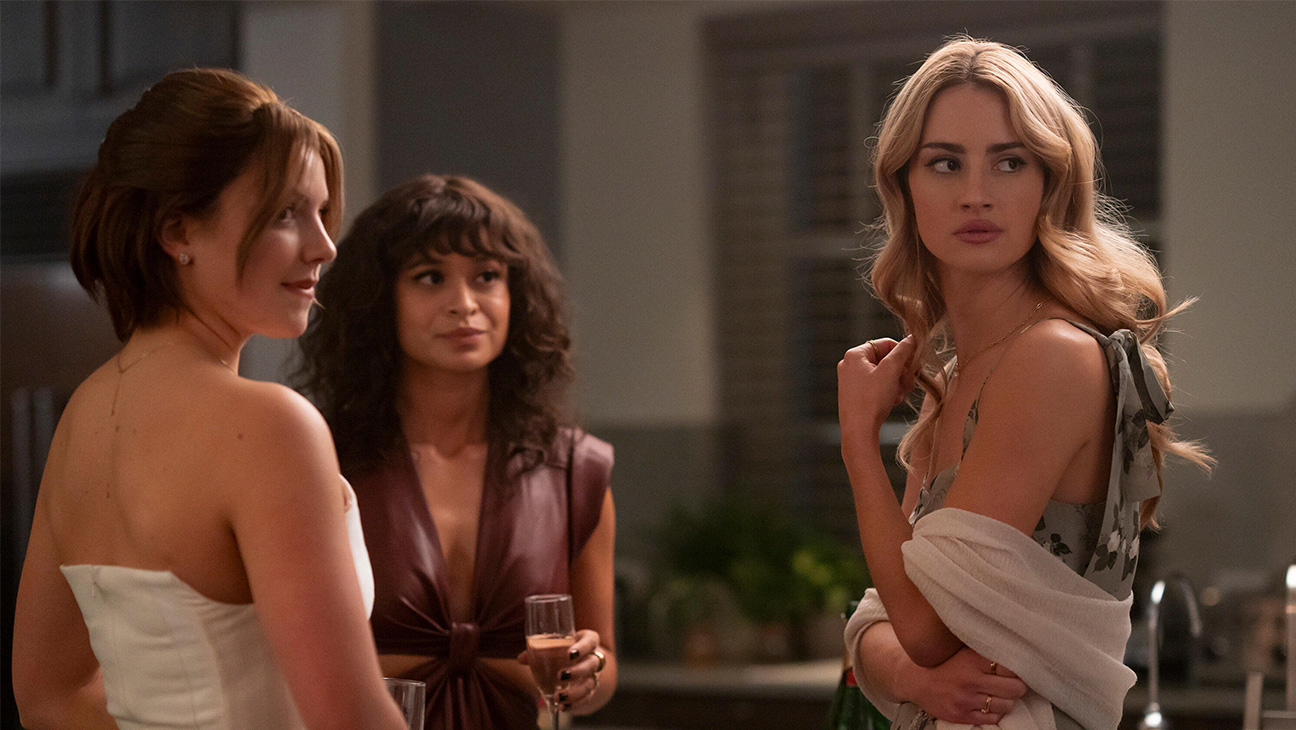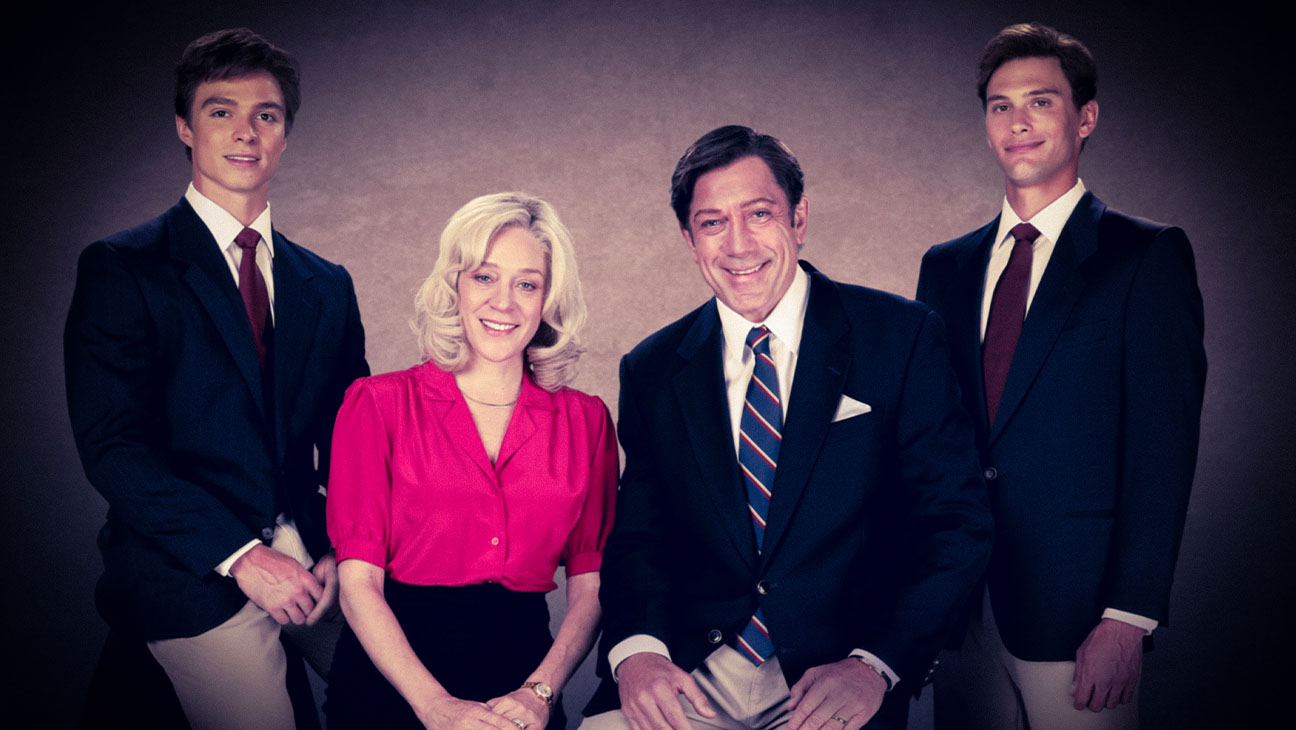In early 2019, Twisters director Lee Isaac Chung had come to terms with the fact his filmmaking career might be over. He’d already recognized the writing on the wall a year earlier and decided to pen a semi-autobiographical script known as Minari, but everything would soon change in February 2019. That’s when Plan B agreed to produce the story about his childhood experiences on his family’s Arkansas farm. A24 joined as distributors a few months later, and Chung, who’d been teaching in South Korea at the time, was suddenly on set that July, recreating many of his own boyhood memories via the film’s shooting location of Tulsa, Oklahoma. (Chung later insisted that Twisters also shoot in Oklahoma, and the childhood home of Daisy Edgar-Jones’ main character is owned by a Minari extra.)
Minari would go on to premiere at 2020’s Sundance Film Festival, winning the U.S. Dramatic Grand Jury Prize and the U.S. Dramatic Audience Award. The film proceeded to hit theaters in December 2020, before landing six Oscar nominations including two for Chung’s direction and original screenplay. Youn Yuh-jung then took home an Oscar for best performance by a supporting actress at the 93rd Academy Awards in 2021.
After the storybook success of Minari, Chung had options for the very first time in career, and before he ended up on Twisters, he purposefully made a pitstop in a galaxy far, far away, learning VFX in the process.
“I am a big Star Wars fan. I’m a bit of a nerd with that stuff, and I love The Mandalorian. So I asked for a meeting with Brian Davids Jon Favreau, and we talked about Minari a bit. He liked the film, and I asked him at the end: ‘Hey, I’d love to do an episode if you would have me.’ And he said, ‘Yeah.’ So I really couldn’t believe that he was actually letting me do it,” Chung tells The Hollywood Reporter.
After completing The Mandalorian season three’s “Chapter 19: The Convert,” Chung would go on to direct another episode of Star Wars television for Jon Watts and Christopher Ford’s Skeleton Crew. At that point, Lucasfilm boss Kathleen Kennedy had already become a big fan of his, and so she endorsed him to her husband, Frank Marshall, who was looking for a director to helm the long-awaited follow-up to Jan de Bont’s Twister (1996). “[Kennedy] served as a reference for what I had done for [Lucasfilm]. I was very touched by that,” Chung says.
When Chung went in to sell his modern take on Twisters, he pitched Marshall and EP Ashley Jay Sandberg from The Kennedy/Marshall Company, as well as one Steven Spielberg. And, for his presentation, Chung intercut footage from de Bont’s Twister with a particular scene from Minari in which the Yi family experience a tornado watch for the first time. This scene likely struck a chord with Spielberg since his own semi-autobiographical film, The Fabelmans, has a scene where his proxy family chases down a tornado in New Jersey.
Spielberg, as well as DP Dan Mindel, would eventually help Chung secure the ability to shoot Twisters on 35mm film, a rarity in this day and age of blockbuster filmmaking.
“I felt like [shooting on film] was a bit of a battle, and I understand [the studio’s] point of view. They want to reduce the unknown risks that exist within production, and film can often feel like an added element of the unknown. But I really love film,” Chung says. “So it basically took me working with [DP] Dan Mindel, and it also took Steven Spielberg coming on board and saying, ‘Please let him shoot on film.’ Those two factors really allowed things to open up for me, so I do credit it to them.”
Below, during a recent conversation with THR, Chung also discusses how he was able to make a franchise legacy sequel that isn’t overly beholden to its predecessor. He then recalls a day on Twisters where he received a sneak preview of David Corenswet’s Superman/Clark Kent.
Did the producers pick up on the tornado watch scene in Minari and ask for a meeting? Was that the root of all this?
When I pitched to them, I put that scene into my pitch to show that Twisters is actually a sequel to Minari. [Writer’s Note: Chung actually cut this scene together with footage from de Bont’s Twister to illustrate how much this franchise hits close to home.] But I don’t actually think they ever picked up on that. Ashley Jay Sandberg at Kennedy/Marshall was specifically looking for a filmmaker who is from the region and could understand the sense of place. So I think that was what they were looking at. I had also worked with Kathleen Kennedy on a couple of Lucasfilm shows, and she served as a reference for what I had done for them, so that helped a lot too.
She endorsed you to her partner, Frank Marshall, who produced Twisters.
Yeah, I was very touched by that. She was happy with what I had done for them.

(from left) Daisy Edgar-Jones and director Lee Isaac Chung on the set of Twisters.
Universal Pictures, Warner Bros. Pictures and Amblin Entertainment
Were the two Star Wars jobs your way of testing the water in this bigger arena? Were they meant to be a warm-up of sorts?
Not really. When I took those jobs, some people were telling me, “You want to take steps,” but I was really thinking, “What would I want to do right now, and can I go for that thing right now?” And I am a big Star Wars fan. I’m a bit of a nerd with that stuff, and I love The Mandalorian. I just felt like it captured Star Wars in this wonderful way. So I asked for a meeting with Jon Favreau, and we talked about Minari a bit. He liked the film, and I asked him at the end: “Hey, I’d love to do an episode if you would have me.” And he said, “Yeah.” So I really couldn’t believe that he was actually letting me do it. I even had to ask my agent: “I think [Favreau] said I can do it, but could you double check?” (Laughs.) So that’s how all of that came out.
But it was quite a good stepping stone for Twisters in terms of learning a lot with VFX and learning how to structure a story in terms of set pieces and action beats rather than simply thinking about a script in a three-act structure and in a very traditional way. So all of that was really an incredible education.
I just spoke to Michael Sarnoski, who went from Pig to A Quiet Place: Day One, and he mentioned that he was a little self-conscious about falling into the pattern of following up a successful indie with a franchise film. Indie to major has always been a thing, but the recruitment of independent filmmakers into franchises is more prevalent now with pre-branded entertainment being the name of the game. Did you feel any reluctance at all?
In a sense, I don’t know why I ought to be self-conscious about it. I do notice that everybody asks me about it, and I find it to be an interesting question, but it’s a hard question to answer. I don’t know if people are wishing that I would protect a certain side of myself or if they feel like I should stick to what I’m doing. And I am not criticizing Michael at all. I really loved Pig; I thought it was an incredible film. I haven’t seen his new one yet. But I don’t really subscribe to auteur theory. I don’t really take that too seriously, and I don’t take myself very seriously as an artist. So, working on a big studio franchise film, I don’t think that there’s any problem with that. If anything, I feel like it’s a dream come true to be able to take on a project that’s quite large and of this scale. It’s a project that actually means a lot to this industry. We need projects like this to succeed. A lot of our jobs count on it, and the theatrical experience that we’re trying to bring to the audience, we need to keep that alive. So I feel like there’s a great responsibility in that, and it’s been really invigorating to be able to work on this side of things and in this realm with that shift in perspective.

(from left) Glen Powell, Daisy Edgar-Jones and director Lee Isaac Chung on the set of Twisters.
Universal Pictures, Warner Bros. Pictures and Amblin Entertainment
You have the same date that Oppenheimer had last year, and that movie was shot on film. But it was also directed by one of the few filmmakers who’s earned the ability to set the terms and call the shots. You started shooting before that movie came out, but given that the studio likely knew what they had, did Oppenheimer help your case for celluloid at all?
It didn’t feel that way for me when I was asking to shoot on film. I felt like it was a bit of a battle, and I understand their point of view. They want to reduce the unknown risks that exist within production, and film can often feel like an added element of the unknown. So I understood their position, but I really love film. I shot my first two features on film, and that’s how I learned to make movies in film school. So it basically took me working with [DP] Dan Mindel, and it also took Steven Spielberg coming on board and saying, “Please let him shoot on film.” Those two factors really allowed things to open up for me, so I do credit it to them.
Shooting on film is so rare now that it’s become a selling point for movies and their marketing, and that honestly bums me out. Do you feel similarly?
I am bummed about that. I know it’s a subjective thing, but visually speaking, movies that are shot on film excite me more when I watch their cinematography. Theatrically speaking, when I see a film on a big screen, I just love what film does and the way it renders colors and environments and faces. So I do find that to be sad, yeah.
Legacy sequels often recycle similar tropes, so it was really nice to not have that here. Yes, you have Dorothy, the “I’m not back” line, the Bombers t-shirt, the movie theater set piece, but your movie isn’t constantly working in service of legacy. Was that part of the original appeal?
Absolutely. I did find that this script was refreshing because it felt like it was a whole new story. It felt new and contemporary and appropriate for the world today. I thought it was bold that they weren’t following a certain mold of legacy sequels. When it came to making nods to the first one, those were things that the studio wasn’t demanding, but they were just my own personal touchpoints of what I love about that first movie. So my heads of department — who are also fans of the first film — and I snuck in things, including the the Bombers t-shirt, and I’m so glad you caught that. That one really delighted us.

(from left) Kate (Daisy Edgar-Jones) and Tyler (Glen Powell) in Twisters
Universal Pictures, Warner Bros. Pictures and Amblin Entertainment
Yeah, there’s some really subtle stuff. Even something like James Paxton’s cameo won’t register for most people until they read about it after the fact. So you walked that fine line very well for this type of film.
I appreciate that. I like for these things to not call attention to themselves, but they meant a great deal to us as we’re working on the project.
Working with Frank Marshall and the aforementioned Steven Spielberg is an intimidating position to be in, and they likely know that, so did they find a way to put you at ease?
From the very start, they simply talked to me as though I’m a fellow colleague and filmmaker. Frank is a director, and obviously, Steven is a legendary director. But when I was in the room talking with them, they spoke to me as though I’m a fellow storyteller, and it was an immediate thing. So that was very empowering for me, and it ultimately helped me feel very loose and free as I was planning and figuring things out. They would tell me that their role as producers on this project was to empower me and to help me be a director and realize the vision that I’m setting for this film. So, in many ways, I look at them as directors’ producers when they are producing movies.

(from left) Mike (Stephen Oyoung), Peter (Alex Kingi), Scott (David Corenswet), Javi (Anthony Ramos) and Kate (Daisy Edgar-Jones) in Twisters
Universal Pictures, Warner Bros. Pictures and Amblin Entertainment
David Corenswet plays, quite literally, a stick-in-the-mud character.
(Laughs.) Yeah.
The contrast between his Dr. Jonas Miller-type (Cary Elwes) character here and his upcoming character, Superman, is going to be quite something. Did you ever witness him doing prep during downtime? Was he already in that mode?
He was doing some auditions for Superman while we were filming, and David is the type of actor who keeps a little bit of his character within himself while he’s working through the day. He’s not full-out method, but he just has a bit of that [character’s] persona to him. And when he came back from auditions in L.A., he came back as Superman. I saw Clark Kent in the way that he smiled at me and in the way he talked to me, and I realized, “Oh, he brought that audition back.” So I had this inkling of a thought that he must have gotten the role, because when I saw him as Superman [in that earlier moment], it just clicked. I just knew he would be perfect for it.
When we filmed the moment where Tony [Anthony Ramos] drives the truck away from him and splashes him with mud, David, in one of the takes, turned to the camera really angry and he ripped his shirt off. (Laughs.) So it was kind of a meta moment for me when I saw that behind the monitor. I was seeing him doing what he’ll probably be doing in [Superman (2025)], but for us, it was obviously much more angry. He was [the character of] Scott, but I love that his mind might’ve been a little bit Superman there.

(from left) Daisy Edgar-Jones, Glen Powell, and Director Lee Isaac Chung on the set of Twisters.
Melinda Sue Gordon/Universal Pictures/Warner Bros. Pictures/Amblin Entertainment
Lastly, you’re about to release Twisters, and it wasn’t that long ago when you considered giving up filmmaking altogether. What’s your takeaway from your career crossroads that might help other filmmakers in a similar spot?
It’s really hard to provide advice just because what’s happened to me has a touch of the impossible within it. I can’t quite explain how I find myself in this position, and I have no real wisdom about that and what you do in this business to get to this point. I just feel like I’ve been very much blessed. But what I would say is that, for a long moment there, I thought everything was done in terms of my career and that I was going to have to quit. And I really made peace with that. I wrestled with the feeling that I was a failure, professionally. And then I came to the other side of that and felt a deep peace about what I had done and where I was. And if I stopped filming, I would be okay. I have a lot of things in my life that I’m grateful for, and they’d carry me through to the next adventure.
So I’ve found that that’s given me much more strength through all of the work that I’ve done, subsequently. It was wrestling with failure and also that deep hard work of gaining peace and an anchor for myself. And so the only recommendation I could really give to people is to really strive to find that anchor. It’s meant a lot to me now as I’m working. It helps me contextualize the problems that I have on any given day as I work. Even working with my crew members, I can see beyond the priorities of the project itself and make sure that they’re going to have a good experience and that this is a good memory in their own formation in life. So all of that definitely matters, and it’s more important than just simply succeeding at making a movie.
***
Twisters opens in movie theaters on July 19.



